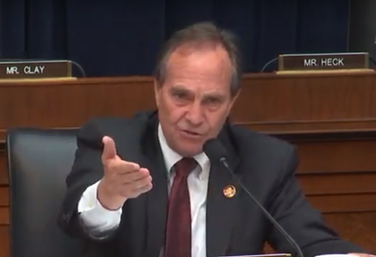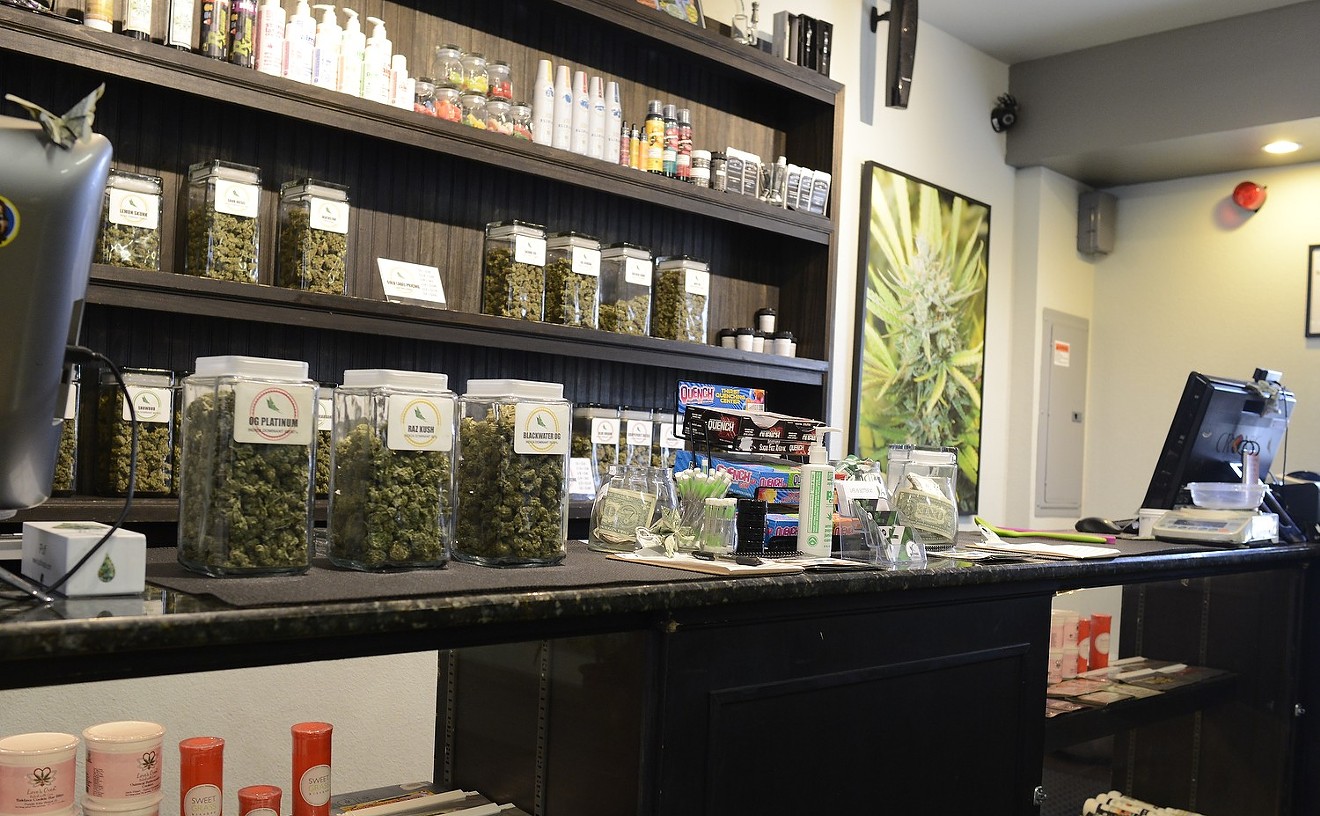Even so, the House Financial Services Committee hearing provided more bark than bite, since this was just an initial discussion of the issue. Among the topics: a draft of Colorado Congressman Ed Perlmutter's SAFE Banking act, which he plans to introduce formally later this month, after he incorporates feedback from the hearing.
Because the plant is still federally illegal, licensed marijuana companies and the ancillary businesses that serve them often have a hard time finding banks and financial institutions that will take their money. Fearing the potential for federal racketeering and trafficking charges for handling funds related to something still deemed federally illegal, most financial institutions won't serve the pot industry...or drop those clients once they find out they're dealing with marijuana businesses. As a result, the majority of licensed pot companies operate on a cash-only basis.
"Today's hearing is a big deal. It's a big deal for thousands of employees and businesses across this country who have been put at risk because they are forced to deal with piles of cash while Congress has stuck its head in the sand," Perlmutter said during the hearing. "We need these marijuana-related businesses and employees to have access to our banking system. It will improve transparency and accountability, and help law enforcement root out illegal transactions to prevent tax evasion, money laundering and other white-collar crime. Most importantly, though, it will help reduce the risk of violent crimes in our communities."
Perlmutter, who has been pushing federal banking reform in connection with licensed pot businesses since 2013, told fellow lawmakers about Travis Mason, a security guard who was shot dead in 2016 during an attempted robbery at a dispensary in Aurora.
"These stories are why we drafted the SAFE Banking Act," he explained. "If someone wants to oppose the legalization of marijuana, that's their business, but the American voters have spoken. The fact is, you can't put the genie back in the bottle. Prohibition is over."

Colorado Representative Ed Perlmutter has been working on marijuana banking reform since 2013.
United States Congress
"You've made a really strong case here as to why these banks deserve a safe harbor," Waters, who serves as committee co-chair, told Perlmutter. "This is so important; so many people have been waiting on it."
Not everyone on the committee was persuaded, however, and the loudest opposition came from representatives of Southern states, including Blaine Luetkemeyer (Missouri), Patrick McHenry (North Carolina), Roger Williams (Texas) and Bill Posey (Florida). Most of their objections centered on marijuana's federal status and — despite committee co-chair Gregory Meek's warnings to keep the discussion on banking — the plant's stigma and designation in the Controlled Substances Act.
"This is like having a stoplight at a major intersection..and the light gets turned off. And [then] what do you have? Confusion and chaos," Luetkemeyer said. "I'm concerned it would create more confusion than it solves."
Calling marijuana "a gateway drug," Williams voiced his disapproval of furthering legalization and allowing banks to serve federally illegal businesses.
Posey's criticism went back to gun rights. A proponent of loosening gun restrictions, he said he didn't believe the marijuana industry deserved "special treatment" from federal enforcement while firearms dealers, payday lenders and other companies believed to be at a higher risk for fraud and money-laundering are also largely denied banking services as a result of a 2013 Department of Justice directive, Operation Choke Point.
However, the Trump administration announced plans to end Operation Choke Point in 2017.
Luetkemeyer and Kentucky rep Andy Barr both wondered why the marijuana industry didn't pursue federal legalization, as industrial hemp had done. "The hemp industry showed us how to solve this problem — by de-scheduling the substance," Luetkemeyer said. "The states have jumped the gun here. They should have contacted their congressman."
Although the much-hyped hearing didn't provide any concrete results, it did represent progress that the pot industry hopes will continue, according to lobbyist Melissa Kuipers Blake.
"This is probably the first [hearing] of its kind. Having this be scheduled so directly and with preparation is really exciting," Blake says. "With the Democratic takeover of the House, there's a larger appetite to take on marijuana issues and have solutions for businesses across the country."
A lobbyist for Brownstein Hyatt Farber Schreck and the Cannabis Trade Federation, Blake represents marijuana brands like LivWell and Dixie Elixirs. She says that the hearing could create more momentum for Colorado Senator Cory Gardner's STATES Act, which would leave marijuana regulation up to the states, similar to the way they regulate alcohol. "Having Senator Gardner — who's in a state that's very blue right now and has taken up the cause and wants to win re-election in 2020 — that's a lot of good politics," she explains.
Blake expects more marijuana reform bills to be introduced in Congress this year, including proposals for conviction expungement and reclassifying THC.
"For Democrats, this has long been an issue and one that they embrace. There's a lot of interest in the social component, and making sure certain groups that were under-represented are now properly represented," she adds. "The Republican side has been completely based on state law and the Tenth Amendment issue. Republicans, as you know, care very strongly about the Constitution. They can't defend guns if it's in the Constitution, and the same goes for states that legalize marijuana."
Update: This story was updated on February 15 to reflect that fact that Representative Perlmutter's bill has not yet been formally introduced.












